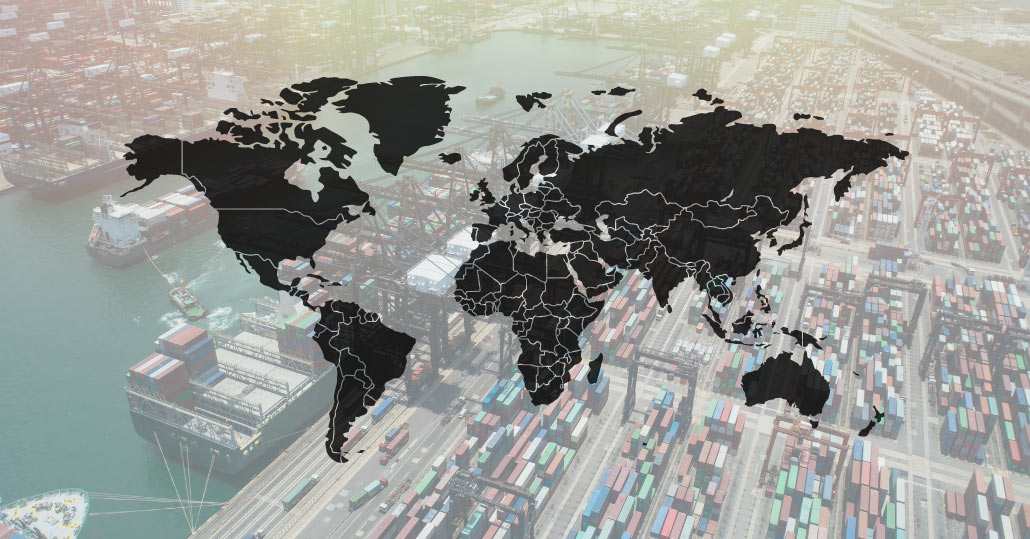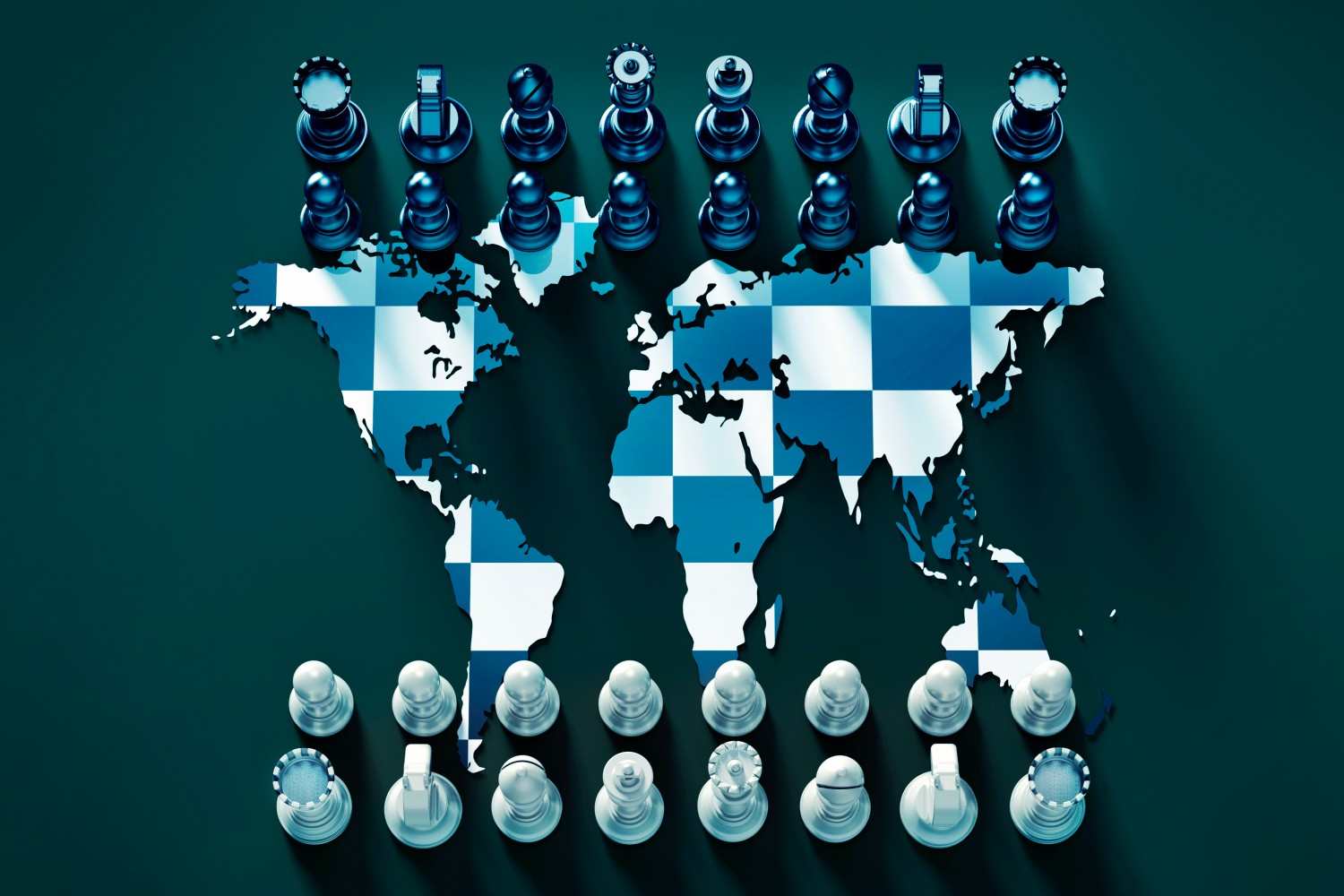Geopolitical Events and Supply Chain Issues have become inseparable forces that can turn the tide of your business overnight. You’ve felt the tremors beneath your feet when world events ripple through the market, shaking the very foundation of supply chain stability. The breath of a tweet, the sign of a treaty, or a closed border—each has the power to twist the intricate wires of global logistics into knots. I’ve seen it first hand, how one overlooked detail can spiral into a full-blown crisis. From shifting trade policies to outright conflict, the impact of international relations on your ability to ship, manufacture, and sell is undeniable and often brutal. I’m here to steer you through this chaos, revealing strategies that fortify your operations against the winds of political change. The goal is simple: to build a resilient supply chain that can withstand the storms of geopolitical unrest. Let’s dive in.
Understanding the Impact of Geopolitical Events on Supply Chain Stability
The Ripple Effect of Trade Disruptions Due to Conflict
War and conflict can turn the world of trade on its head. What are trade disruptions due to conflict? They happen when countries at war change or stop trade. This can lead to less stuff moving across borders. It throws a wrench in how businesses work.
Say one country stops buying goods from another. This move can force companies to find new partners fast. When goods are stuck due to conflict, companies everywhere feel the pain. Ships may wait longer at ports. Trucks might face longer lines at borders. It’s like a big traffic jam that can stretch all the way to your local store.
Global shipping gets hit hard. Ships can’t go to some places. They have to take longer routes. Costs go up. Delays happen. And it’s not just about the products. It’s about the people too. Workers can’t get to where they need to be.
Trade policy shifts can add more trouble. Tariffs may go up. This makes stuff more expensive. Both businesses and customers don’t want that.
Analyzing International Relations Impact on Trade
Why does how countries get along matter for trade? Good relations mean smooth trade. Bad relations can mean roadblocks. Diplomatic tensions and trade go hand in hand. When countries argue, they might put up trade barriers as a fight move.
If countries don’t see eye to eye, they might use economic sanctions. These sanctions ban trade with certain places. The aim is to pressure the bad-acting country to change. But it’s not that simple. Sanctions can hurt companies that had nothing to do with the fight. These companies might lose money or even close their doors.
Imagine you’re buying parts from a country that’s just been hit with sanctions. You can’t get those parts anymore. You need a backup plan. That’s where crisis response in supply chain management comes in.
It’s not all doom and gloom, though. With every challenge comes an opportunity. Crises can push businesses to toughen up. They learn to manage their resources better. They learn to plan for the bad times, not just the good. This is where supply chain resilience tactics come into play.
In a world full of change, companies must stay sharp. They need to watch world events and see how they might shake up trade. They should have a plan B (and maybe a plan C) for when trouble hits. That’s how they stay ahead and keep bringing you the goods you need.
In a nutshell, world events disrupting commerce is a big deal. It affects what you can buy, how much it costs, and when you can get it. For companies, it’s about rolling with the punches and always being ready with another move. The best companies watch the news as close as they watch their warehouse. They know that what happens across the globe might just land on their own front door.
Navigating the Complexities of Global Shipping and Trade Policies
Economic Sanctions and Their Effects on Supply Chains
When countries clash, trade often suffers. Imagine you sell toys and one country blocks another. Now, you can’t get the special plastic you need for the toys. This is what we call sanctions. They are tough rules that stop stuff from going in or out of a country.
What do sanctions look like? One country might not let goods move to another. It’s to make a point or force change. Sanctions can hit like a brick. Factories may stop. Shops might run low on stuff to sell. Workers lose jobs. Prices go up. It’s a domino effect that starts far but ends up on your doorstep.
To stay ahead, know where your goods come from. Keep an eye on the news. When tensions rise, be ready to find new supplies. It’s not easy or quick, but it helps. Build a network of suppliers. Not just one place, but many. So, when one path is blocked, you have others to rely on.
Overcoming Global Shipping Delays and Import-Export Challenges
Ships carry most of the stuff we buy from place to place. But what happens when they can’t move fast? It’s a big mess. Delays can come from bad weather, broken ships, or even fights over land or sea.
If a big ship gets stuck in a canal, it’s like a giant cork in a bottle. All other ships wait. Your goods wait too. Customers get antsy. Orders get canceled. You lose money.
Be smart. Have a plan B. Know your ship routes. If a path is clogged, be quick to switch. Talk to shipping experts. They’ll know the best ways around trouble.
Don’t put all your eggs in one basket. Have more than one way to ship. Use trucks, trains, even planes if you must. Yes, they can be costly, but losing a big sale can cost more.
Keep your buyers in the loop. If their stuff will be late, tell them. Be honest. Give updates. They’ll thank you for it.
Trade and shipping can be a tough game. It’s full of twists and turns. With the right plan, you can dodge the worst. And keep your business running smooth, no matter what the world throws at you.
Crisis Management Strategies for Supply Chain Resilience
Effective Crisis Response in Supply Chain Management
When trouble hits, quick and smart moves save the day. Think of supply chain management like a game of chess. Every piece matters. A crisis can come from nowhere – strikes, storms, or even big events that make the news. Each one can shake up your supply chain.
What do you do if a problem pops up? You might have less stuff coming in. Or maybe your goods can’t get through. Don’t panic. Get your team together. Look at what you have and what you need. Talk to your partners and make a plan.
First, know that it’s key to act fast. This means having a plan ready before you need it. If you handle parts from other countries, know who else can supply these if your main source can’t. Also, keep some extra stock on hand. Not too much, just enough.
Stay in touch with everyone. This includes your people, buyers, and the ones you buy from. Be honest and clear. Tell them what’s going on and what you’re doing about it.
Use tech to help you see where things are. This lets you find problems soon and fix them faster. Data can also tell you when risk is high. This is when you really need to stay on your toes.
In the end, being ready and quick to act will help you keep things moving when it matters most.
Strategic Approaches to Border Closures and Logistic Hurdles
Now, let’s face it. Borders can close just like doors. Goods stuck at the border are bad news for business. The trick is to not put all your eggs in one basket. If one path closes, you should have another way.
How? Well, understanding the rules helps. Sometimes, knowing who to talk to can open closed doors. Also, try to use ports that aren’t so busy. This can keep your goods moving when others are stuck.
Sometimes whole countries can’t trade, thanks to what we call sanctions. If this happens, you need to find new places to get your parts from. Or sell your goods to. Getting good advice is worth its weight in gold here.
Keep an eye on how things are going in the world, too. Trouble in one spot can ripple out and touch you. That’s why you should know what’s going on, even far away.
Make plans for the worst. Hope for the best but get ready for tough times. This could mean having more supplies than you usually do. Or finding more than one supplier for the things you really need.
If things go south, moving fast and knowing your options can save the day. Keep your eyes open and don’t wait for trouble to come knocking. With a solid plan and smart moves, you can dodge these problems and keep your goods on the move.
Proactive Planning for Sourcing and Manufacturing Amidst Geopolitical Tensions
Sourcing Strategies to Mitigate Political Unrest Effects
When countries clash, it shakes up trade in a big way. One must think ahead, way ahead. Smart sourcing is key. Have backup plans for where you get stuff. Make friends in different places. That’s how you keep goods flowing when trouble hits.
Finding new suppliers before a crisis is a game changer. You’re not stuck if one nation sets up roadblocks. Look beyond your home base. Some countries might surprise you with what they offer. Don’t wait for signs of unrest; dig into this now.
Ensuring Global Manufacturing Network Stability through Geopolitical Forecasting
Now, let’s talk about keeping your factories running smooth, no matter what. Bad stuff happens. But with good info, you can brace for it.
Know the world scene like the back of your hand. How nations talk to each other matters. It gives us clues about what’s next for trade. Will there be new rules? Maybe fees on what comes across borders? You can bet on it. It’s all part of the game.
Get hip to what may be coming down the pike. Use experts who can guess the world’s mood. They help you dodge curveballs. That means your shop keeps humming, even when the news is grim.
It’s true, shaking the crystal ball doesn’t tell us everything. Yet, it’s a lot better than being caught off guard. Keeping an eye on hot spots in the world lets you plan a few moves ahead. It keeps your supply lines from breaking. And in business, that’s a big win.
In closing, think ahead, get the best info, and be ready for anything. That’s how you win at this high-stakes trade game. Sure, it takes work. But when your stuff gets where it needs to go, it’s all worth it.
We’ve delved into how global events shake up supply chains, from trade barriers to policy shifts. We explored the domino effect that conflict has on trade and how politics play a critical role in international relations, affecting supply and demand. Next, we navigated the tricky waters of global shipping, economic sanctions, and their ripple effects on businesses. We also covered how to manage crises and bounce back from border snags and logistic roadblocks.
Finally, we focused on forward-thinking — the smart sourcing and manufacturing moves that help businesses stay strong despite political storms. By predicting and planning for geopolitical shifts, companies can keep their operations smooth and steady.
Geopolitical events will always impact business. But with the right strategies, you can ride the waves of change and keep on sailing towards success. Remember, staying informed and agile is your best defense in a world where the only constant is change. Keep these insights close, and you’ll be well-equipped to navigate the future’s uncertain waters.
Q&A :
How do geopolitical events affect global supply chains?
Geopolitical events, such as international conflicts, trade wars, and sanctions, can have a profound impact on global supply chains by disrupting the flow of goods and services. This can result in increased costs, delays in delivery, and shortages of certain products. Companies are forced to navigate these complexities, often seeking alternative suppliers or rerouting logistics to maintain operations.
What are some examples of supply chain issues caused by geopolitical events?
Examples of supply chain issues include restrictions on trade with particular countries due to political tensions, embargoed goods resulting from sanctions, and logistical challenges arising from military conflicts that affect transportation routes. The 2020 global pandemic is another example where geopolitical decisions regarding lockdowns and border closures caused significant disruptions.
Can geopolitical tensions lead to permanent changes in supply chains?
Yes, geopolitical tensions can lead to long-term or even permanent changes in supply chains. Businesses may diversify their supplier base to avoid reliance on a single country or region, invest in localizing certain production capabilities, or reconfigure their supply chain strategies to be more resilient to future geopolitical shifts.
How can companies mitigate the risks of geopolitical events on their supply chains?
Companies can mitigate risks by engaging in proactive supply chain risk management, which includes mapping supply chains, identifying potential geopolitical risks, diversifying suppliers, increasing stockpiles of critical components, and developing contingency plans to switch production or distribution channels quickly.
What role does supply chain resilience play in dealing with geopolitical events?
Supply chain resilience plays a critical role as it determines a company’s ability to quickly adapt and recover from disruptions caused by geopolitical events. Resilience can be achieved by building flexibility into the supply chain, maintaining good relationships with suppliers, understanding the political landscape, and investing in predictive analytics to foresee and mitigate future risks.






